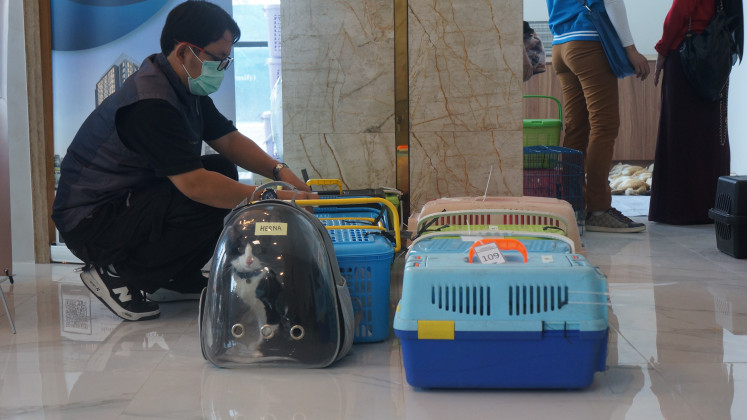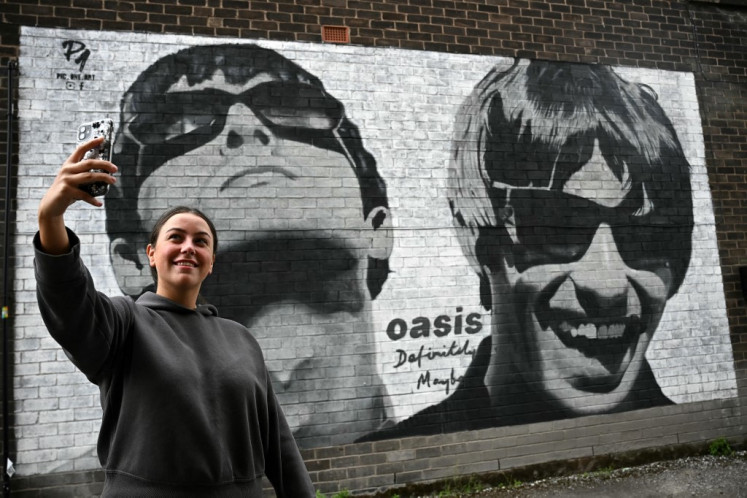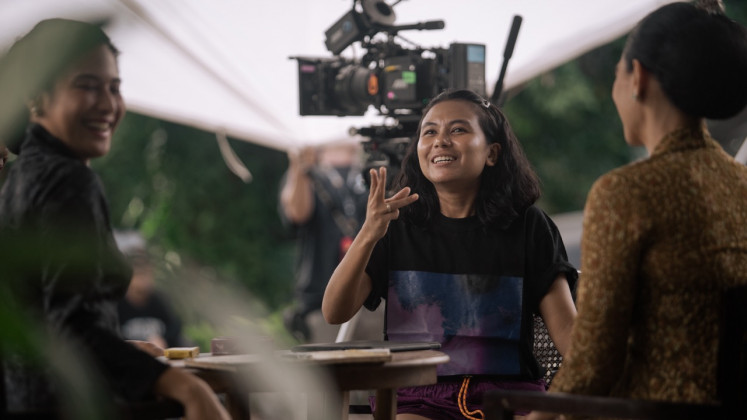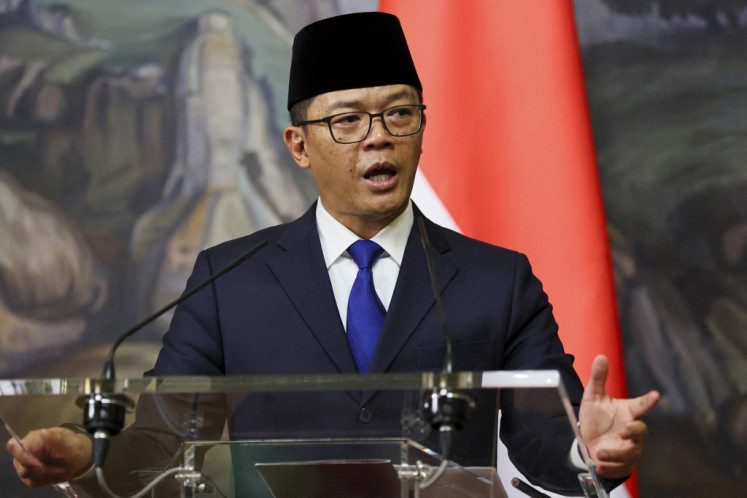Popular Reads
Top Results
Can't find what you're looking for?
View all search resultsPopular Reads
Top Results
Can't find what you're looking for?
View all search resultsESSAY: Forbidden love
Those who like to pathologize LGBT people condescendingly say that we become like this because of our psychological trauma.
Change text size
Gift Premium Articles
to Anyone
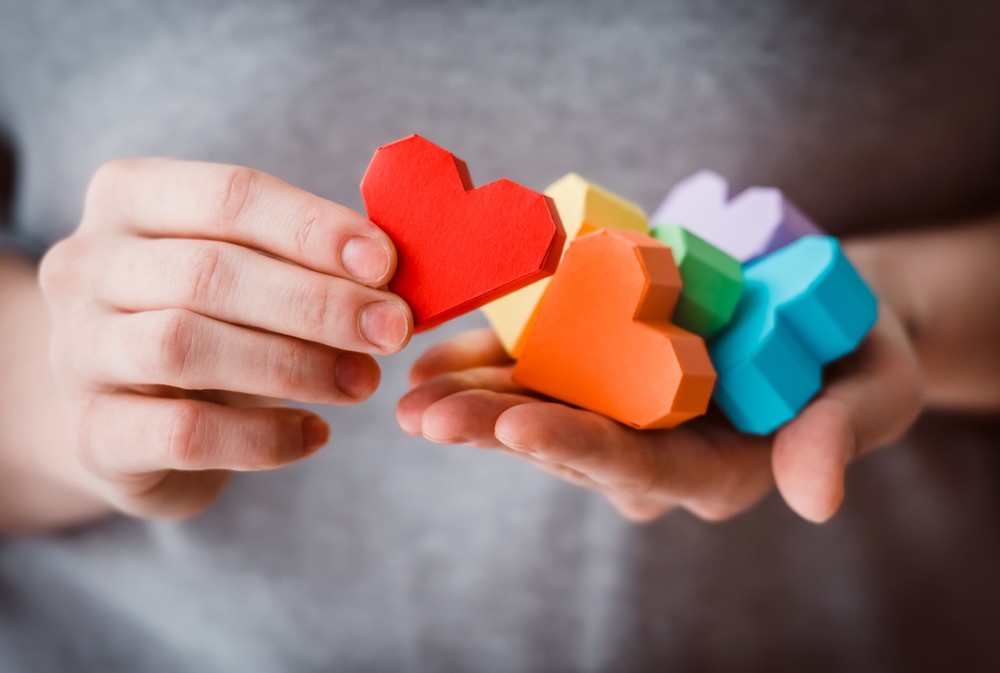 According to research conducted by psychiatrist Alan Downs in his 2005 book The Velvet Rage: Overcoming the Pain of Growing up Gay in a Straight Man’s World, this promiscuous and high-risk behavior does not signify any personal pathology; instead, it embodies the burden carried by LGBT individuals as they have to bear the stigma imposed upon them by society. (Shutterstock/-)
According to research conducted by psychiatrist Alan Downs in his 2005 book The Velvet Rage: Overcoming the Pain of Growing up Gay in a Straight Man’s World, this promiscuous and high-risk behavior does not signify any personal pathology; instead, it embodies the burden carried by LGBT individuals as they have to bear the stigma imposed upon them by society. (Shutterstock/-)
If I had one wish, love would feel like this… (“Forbidden Love,” Madonna)
Just recently, I watched a 2012 Canadian romantic drama called Laurence Anyways written and directed by Xavier Dolan at the Kinosaurus cinema café. I did something I hadn’t done for quite a while: I wept silently while I sat there in the darkness and watched the motion pictures moving right before my eyes, like a train.
As part of the lesbian, gay, bisexual and transgender (LGBT) community, the film touched me deeply. It is about Laurence (Melvil Poupaud), a 30-year-old transgender woman living as a man, who is deeply in love with his girlfriend Fred (Suzanne Clément). One day, Fred confessed her desire to transition into a man. Despite this, along with other types of conflicts that often befall LGBT couples, they continue to love each other deeply and contribute to one another’s spiritual growth, against all odds.
The tender love presented by the film allows me to forget, for a while, all sex and gender divides and immerse myself in a concept of “love” that goes beyond all boundaries (homosexual, heterosexual, etc.).
Why is this important? I feel hurt when I hear certain [heterosexual] people’s judgments against LGBT people. I used to be friends with one woman who was seemingly intent on “fixing” other people whom she deemed “problematic.”
She likes to listen to other people pouring their hearts out in order to pity them and give them patronizing and condescending advice, to display her schadenfreude, to affirm her own superiority by observing others’ more painful lives. This person has always stepped over personal boundaries, poking her nose where it doesn’t belong.
One day she went too far. I don’t remember how our conversation led into this discussion, but I just remember her suddenly judging me like this:
“Many people’s lives are being messed up because their parents are negligent,” she said, carrying her usual air of superiority. “Just like you, right?” she said suddenly while fixing her eyes on mine.
She continued: “You are fatherless, motherless and your foster parents are messed up. That’s why you choose to be gay, right? Because you want to have it the easy way! You are afraid to start a normal family, you are afraid your girlfriend will get pregnant, that’s why you choose to do it with men instead!”
I was at a loss for words when she said that. So, this woman foolishly thinks that we become gay or lesbian because we want to make it easier to fornicate? Well, do I have to tell her about my frigidity, that I’m cold as ice when it comes to intimate, sexual relationships — should I tell her that my trauma is also intrusive in my friendships, that I’m terrified of other people, that I have trust issues against practically everyone?
The point is, being gay is not just about sex. The consequences of psychological trauma are also more complex than just an impaired sex life — it wreaks havoc on all aspects of our human relationships. Those who like to pathologize LGBT people condescendingly say that we become like this because of our psychological trauma.
Yes, there are many LGBT people indulging in high-risk sexual behavior. But let’s not jump to conclusions here. According to research conducted by psychiatrist Alan Downs in his 2005 book The Velvet Rage: Overcoming the Pain of Growing up Gay in a Straight Man’s World, this promiscuous and high-risk behavior does not signify any personal pathology; instead, it embodies the burden carried by LGBT individuals as they have to bear the stigma imposed upon them by society. Moreover, they have internalized the homophobia they have been subjected to, to the point that they somehow believe all the prejudice against them, including the idea that they are just sex-maniac animals.
Imagine being subjected to a heavy burden, you’ve got to let off some steam, right? If only our society was less prejudiced against LGBT people, we might be able to avoid these destructive behaviors and maintain our mental health better. It is no secret that the LGBT community is more prone to suicidal behavior, due to the merciless prejudice we have to bear every day.
I had one gay friend who fell in love with his close friend. He’s still in love with this same person after three years of them not meeting one another. Again, instead of being propelled by that rushing desire, he told me he had grown to love this man because the latter was able to make him feel safe, respected and honored.
My friend assumed this man was heterosexual, so he never stepped over that boundary. They separated for two years when the man left to work abroad, something that devastated my friend and sent him into a year full of depression.
Tragically, one day, a close friend of the man told my friend that the man was actually gay but preferred to be closeted. The reason the man had been avoiding my friend was because he was afraid of his own feelings toward my friend. Still, years went by, and my friend’s love for the one he never got to have remains intact.
Well, I don’t want to turn this into a weepy story. LGBT people are not the only “victims” of unrequited love. I know many friends who love each other deeply, but because of different socioeconomic status or religious faiths, they just can’t be together.
What I want to say is this: being in love and being with the one you love is truly a privilege; it’s not an entitlement. Therefore, for those reading this who feel that they have found their true love, you should be grateful for their presence and never take them for granted. Because there are many of us out there, including my gay friend and his beloved man, who just can’t afford to enjoy that luxury.




